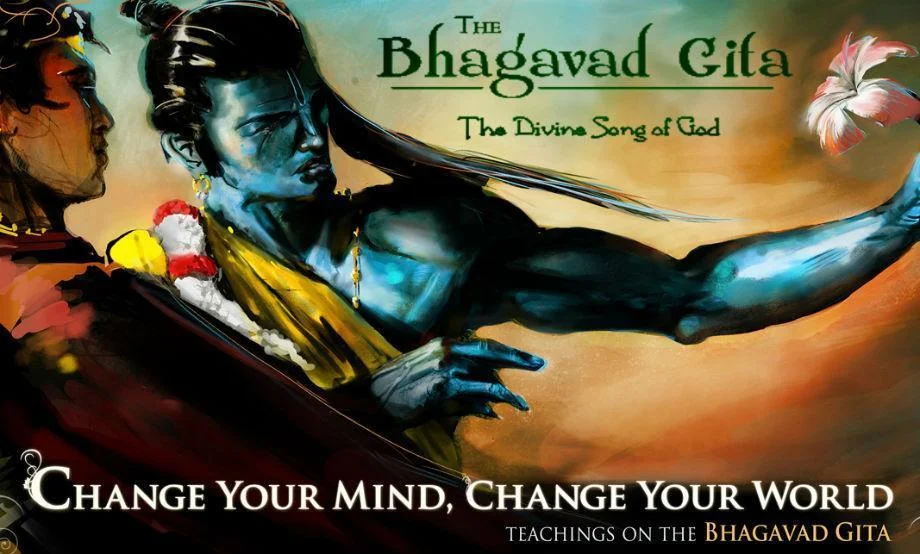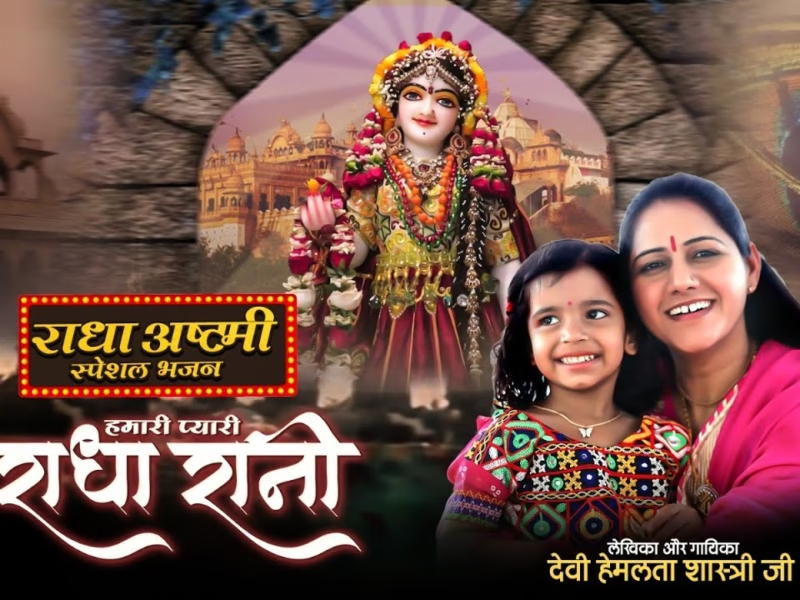Contents
English हिंदी తెలుగు ଓଡିଆ ગુજરાતી தமிழ்
The Bhagavad Gita, also known as the Gita, is a sacred Hindu text that is considered to be one of the most important spiritual scriptures in the world. It is a part of the Mahabharata, an epic poem that tells the story of a great battle between two families. The Gita is a dialogue between Lord Krishna and the warrior Arjuna, who is facing a moral dilemma on the battlefield. In this article, we will explore the key themes, structure, and lessons of the Bhagavad Gita and its relevance to modern life.
The Bhagavad Gita – The Divine Song of God
Key Themes in the Bhagavad Gita
The Bhagavad Gita is known for its profound philosophical teachings that cover a wide range of topics related to spirituality and human nature.
Some of the key themes include:
Karma Yoga: Karma Yoga is the path of action and selfless service. It teaches us to perform our duties without attachment to the results, and to offer our actions to God. This path is based on the principle of dharma, which is the idea of fulfilling one’s duty or role in life.
Bhakti Yoga: Bhakti Yoga is the path of devotion and love for God. It emphasizes the importance of developing a personal relationship with God through prayer, meditation, and worship. This path is based on the principle of surrender, which is the idea of letting go of our ego and submitting to a higher power.
Jnana Yoga: Jnana Yoga is the path of knowledge and wisdom. It teaches us to seek the truth through self-inquiry and contemplation. This path is based on the principle of self-realization, which is the idea of discovering our true nature as spiritual beings.
The Structure of the Bhagavad Gita
The Bhagavad Gita is composed of 18 chapters and 700 verses. Each chapter is named after a different yoga or path to spiritual realization. The chapters are organized in a way that reflects the progression of spiritual development, with each chapter building upon the previous one.
- Chapter 1: अर्जुनविषादयोग- नामक पहला अध्याय
Arjun Viṣhād Yog : Lamenting the Consequences of War - Chapter 2: सांख्ययोग-नामक दूसरा अध्याय
Sānkhya Yog : The Yog of Analytical Knowledge - Chapter 3: कर्मयोग- नामक तीसरा अध्याय
Karm Yog : The Yog of Action - Chapter 4: ज्ञानकर्मसंन्यासयोग- नामक चौथा अध्याय
Jñāna Karm Sanyās Yog : The Yog of Knowledge and the Disciplines of Action - Chapter 5: कर्मसंन्यासयोग- नामक पाँचवाँ अध्याय
Karm Sanyās Yog : The Yog of Renunciation - Chapter 6: आत्मसंयमयोग- नामक छठा अध्याय
Dhyān Yog : The Yog of Meditation - Chapter 7: ज्ञानविज्ञानयोग- नामक सातवाँ अध्याय
Jñāna Vijñāna Yog : Yog through the Realization of Divine Knowledge - Chapter 8: अक्षरब्रह्मयोग- नामक आठवाँ अध्याय
Akṣhar Brahma Yog : The Yog of the Eternal God - Chapter 9: राजविद्याराजगुह्ययोग- नामक नौवाँ अध्याय
Rāja Vidyā Yog : Yog through the King of Sciences - Chapter 10: विभूतियोग- नामक दसवाँ अध्याय
Vibhūti Yog : Yog through Appreciating the Infinite Opulences of God- Chapter 11: विश्वरूपदर्शनयोग- नामक ग्यारहवाँ अध्याय
Viśhwarūp Darśhan Yog : Yog through Beholding the Cosmic Form of God- Chapter 12: भक्तियोग- नामक बारहवाँ अध्याय
Bhakti Yog : The Yog of Devotion- Chapter 13: क्षेत्र-क्षेत्रज्ञविभागयोग- नामक तेरहवाँ अध्याय
Kṣhetra Kṣhetrajña Vibhāg Yog : Yog through Distinguishing the Field and the Knower of the Field- Chapter 14: गुणत्रयविभागयोग- नामक चौदहवाँ अध्याय
Guṇa Traya Vibhāg Yog : Yog through Understanding the Three Modes of Material Nature- Chapter 15: पुरुषोत्तमयोग- नामक पंद्रहवाँ अध्याय
Puruṣhottam Yog : The Yog of the Supreme Divine Personality- Chapter 16: दैवासुरसम्पद्विभागयोग- नामक सोलहवाँ अध्याय
Daivāsura Sampad Vibhāg Yog : Yog through Discerning the Divine and Demoniac Natures- Chapter 17: श्रद्धात्रयविभागयोग- नामक सत्रहवाँ अध्याय
Śhraddhā Traya Vibhāg Yog : Yog through Discerning the Three Divisions of Faith- Chapter 18: मोक्षसंन्यासयोग- नामक अठारहवाँ अध्याय
Mokṣha Sanyās Yog: Yog through the Perfection of Renunciation and SurrenderLessons from the Bhagavad Gita
The Bhagavad Gita offers a wealth of spiritual insights and practical guidance for living a fulfilling and meaningful life. Here are some of the key lessons we can learn from the Gita:
Importance of Duty
The Bhagavad Gita teaches us the importance of fulfilling our duty or dharma in life. By doing our duty with dedication and selflessness, we can contribute to the greater good and create positive change in the world.
Attaining Inner Peace
The Gita teaches us that true peace and happiness come from within, and that we can cultivate inner peace through meditation, self-discipline, and detachment from material desires.
Overcoming Fear and Doubt
The Gita offers guidance on how to overcome fear and doubt, which can be obstacles to spiritual growth. By cultivating faith and surrendering to a higher power, we can develop the courage and confidence to face life’s challenges with grace and equanimity.
Role of Devotion in Spiritual Growth
The Bhagavad Gita emphasizes the importance of devotion and love for God in the path of spiritual growth. By cultivating a deep and sincere relationship with God, we can develop a sense of connection and purpose in life.
The Bhagavad Gita and Modern Life
Despite being over 5,000 years old, the teachings of the Bhagavad Gita remain relevant to contemporary society. Its emphasis on selfless service, inner peace, and devotion to a higher power are timeless principles that can guide us in our personal and professional lives.
Incorporating the teachings of the Gita into daily life can be as simple as practicing mindfulness, showing kindness and compassion to others, and living a life of purpose and meaning. Many people have found the Gita to be a source of inspiration and guidance, regardless of their religious or cultural background.
The Bhagavad Gita is a timeless spiritual text that offers profound insights and practical guidance for living a fulfilling and meaningful life. Its teachings on duty, inner peace, overcoming fear and doubt, and the role of devotion in spiritual growth are as relevant today as they were thousands of years ago.
By incorporating the principles of the Gita into our daily lives, we can cultivate a deeper sense of purpose, connection, and fulfillment. Whether we are seeking spiritual enlightenment or simply looking for practical guidance on how to live a good life, the Bhagavad Gita has something to offer everyone.
FAQs
What is the Bhagavad Gita?The Bhagavad Gita is a sacred Hindu text that is considered to be one of the most important spiritual scriptures in the world. It is a part of the Mahabharata, an epic poem that tells the story of a great battle between two families. The Gita is a dialogue between Lord Krishna and the warrior Arjuna, who is facing a moral dilemma on the battlefield.
What are the key themes of the Bhagavad Gita?The key themes of the Bhagavad Gita include Karma Yoga, Bhakti Yoga, and Jnana Yoga. These are the three paths to spiritual liberation and are discussed in detail throughout the text. Other key themes include the importance of duty, inner peace, devotion, and the nature of the self.
Is the Bhagavad Gita only relevant to Hindus?No, the Bhagavad Gita is not only relevant to Hindus. Its teachings are universal and can be applied by people of all backgrounds and faiths. Many people from different cultures and religions have found inspiration and guidance in the Gita.
Is the Bhagavad Gita difficult to understand?The language and concepts used in the Bhagavad Gita can be challenging for some readers, but there are many translations and commentaries available that can help make the text more accessible. It is also important to approach the Gita with an open mind and a willingness to learn.
Can the teachings of the Bhagavad Gita be applied to modern life?Yes, the teachings of the Bhagavad Gita are as relevant to modern life as they were thousands of years ago. Its emphasis on selfless service, inner peace, and devotion to a higher power are timeless principles that can guide us in our personal and professional lives.
- Chapter 11: विश्वरूपदर्शनयोग- नामक ग्यारहवाँ अध्याय












